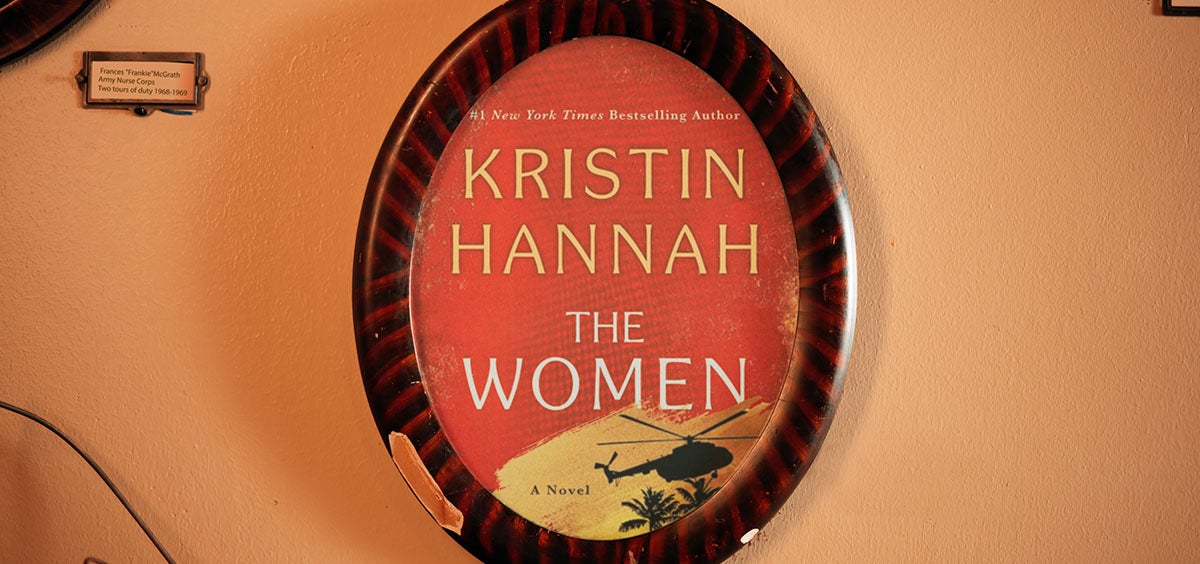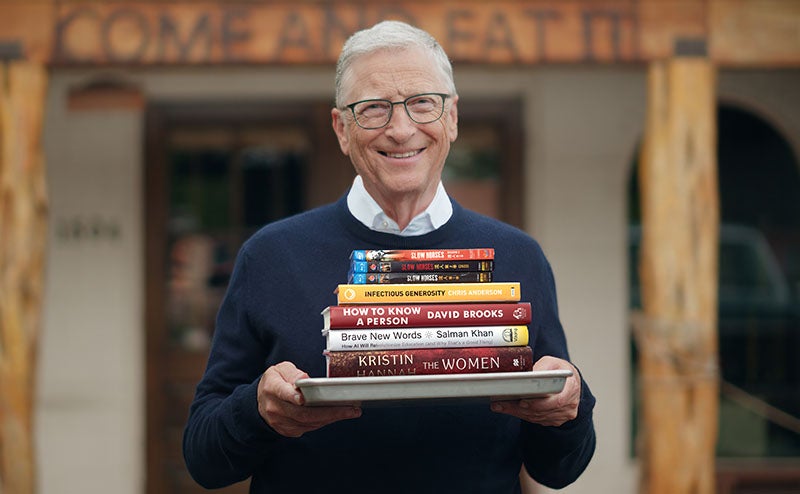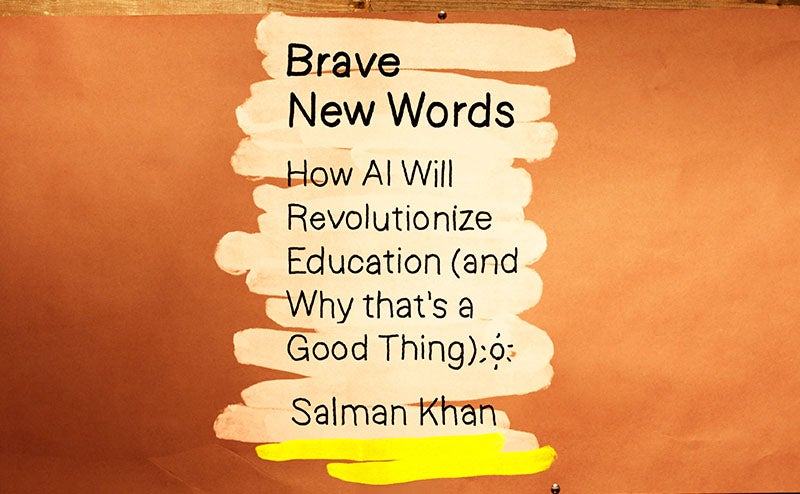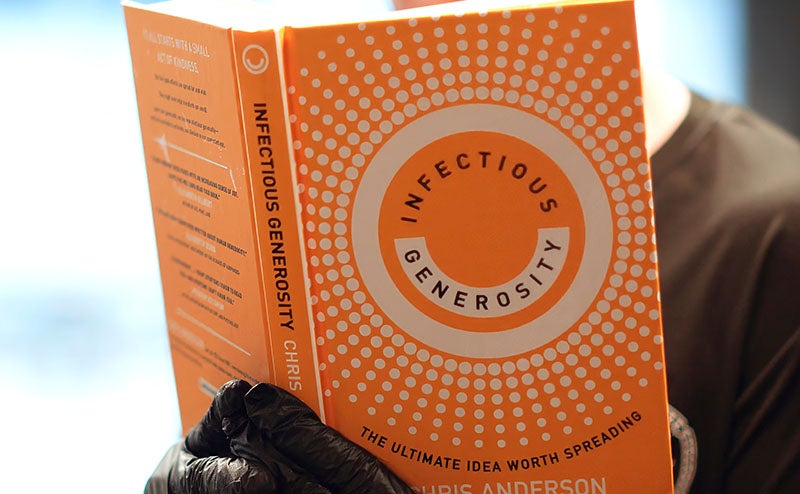Without any women’s teams to join, Jeanne d’Arc trained on her own.
When I was 15 years old, one of my teachers took me to my first Vietnam War protest.
My teacher ended up getting in a bit of trouble for it, but I’m thankful he took us. The war was such a centerpiece of what was going on in the 1960s. It was incredible to experience what seemed like (and turned out to be) history in the making. I remember feeling like I was a very small part of something big.
I thought about that experience a lot while I was reading The Women by Kristin Hannah. This terrific novel tells the story of Frankie McGrath, an army nurse who serves two tours on the frontlines in Vietnam before returning home to a country rocked by protest and anti-war sentiment.
I wasn’t familiar with Kristin Hannah before reading The Women, even though she’s written a number of books that have done quite well (and this one is already a huge hit). My brother-in-law John—who served two tours in Vietnam and found the book fantastic—recommended it to me when he found out I was headed there for vacation. I actually read the book in Da Nang, which was where U.S. troops first landed back in 1965.
Although I’ve read and watched a lot about the war in Vietnam, The Women made me think about it in a new light. I didn’t know about the critical role so many women played, and it was both eye-opening and inspiring to learn more about the frontline nurses who saved countless lives.
At the beginning of the book, Frankie is inspired to enlist in the army after a friend suggests that women can also be heroes. She grew up looking at her father’s wall of veterans in his office, where portraits hung of all the male family members who had served. Hannah writes, “Why had it never occurred to Frankie that a girl, a woman, could have a place on her father’s office wall for doing something heroic or important, that a woman could invent something or discover something or be a nurse on the battlefield, could literally save lives?”
The book makes it clear that Frankie and her colleagues are true heroes—but their presence in Vietnam is largely ignored and forgotten, even by those who served with them. In one particularly memorable scene after she returns from war, Frankie seeks mental health treatment at her local VA hospital. It’s clear that she is suffering from PTSD and needs help. But the hospital turns her away because she is a woman and, therefore, couldn’t possibly be a veteran.
Frankie hears the phrase “there weren’t women in Vietnam” from her fellow veterans over and over in the book. What they mean is that women weren’t on the frontlines. But as the book makes clear, if you’re in a medical role near the war front, you experience every bit of the trauma of war. Frankie treats hundreds of people who died or suffered life-changing wounds. She is forced to hunker down whenever the base she works on is under attack. There are moments when she thinks she is going to die. Her time overseas is grim and horrifying, and I can’t imagine how devastating it must have been for real female Vietnam veterans to have their experiences discounted after coming home.
This is a novel, of course, and not a history book. But the author spent a lot of time talking to female Vietnam veterans about their experiences, and the depth of her research comes through in the writing.
I was especially interested to read about Frankie’s slow revelation that the U.S. government has been lying about the war. When she first arrives in Vietnam, she believes that the U.S. is winning the war. Over time, she begins to notice that the upbeat message coming from the military leadership doesn’t match with what she’s experiencing on the ground. After one particularly gruesome day of fighting, Frankie’s friend and coworker Barb notes that “the Stars and Stripes reported no American casualties yesterday. Seven men died in OR One alone.”
I remember watching the nightly news with my parents during the war and hearing that way more North Vietnamese soldiers had died than American soldiers. The government told us that casualty counts were the figure of merit, and by that measure, we were winning the war. Later, we found out the numbers had been distorted. And death totals were not even the right metric in the end, because the North Vietnamese were fighting for their very existence. The number of men they could call up at will was way beyond anything we could ever deal with. (I highly recommend reading H.R. McMaster’s book Dereliction of Duty if you want to learn more about this.)
The Women is an important reminder that no one was more impacted by these lies than the brave men and women serving overseas. They were sent to the frontlines of an unwinnable conflict, and they returned home to a nation that had turned against both the war and the people who served in it. Frankie reflects that “the world of hippies and protesters felt far, far away. It had nothing to do with the guys dying over here. Except that it did. The protests made them feel that their sacrifices meant nothing or, worse, that they were doing something wrong.”
I like to think that has changed by now. Enough time has passed that most people acknowledge the individual heroism that took place in Vietnam, even though history doesn’t look kindly on the war itself. People over there did things that we can—and should—be proud of. That’s one reason why I’m glad to see a book like The Women doing so well. It’s a beautifully written tribute to a group of veterans who deserve more appreciation for the incredible sacrifices they made.



